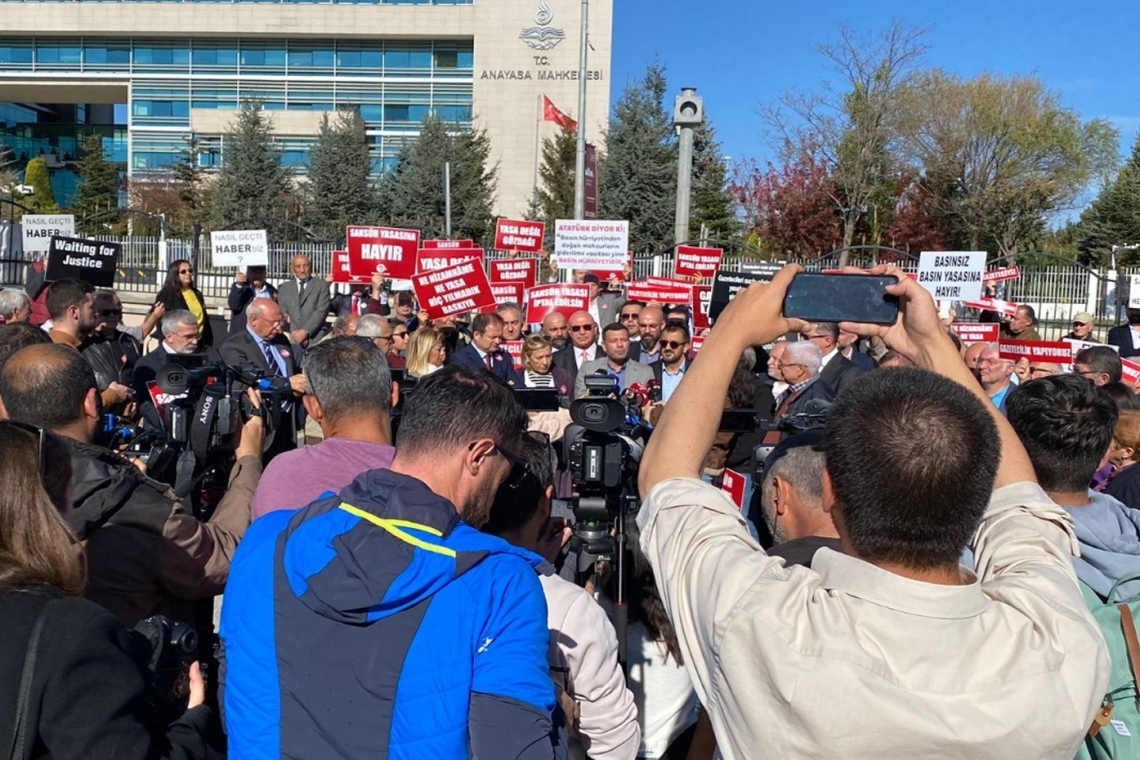On 23 Feb, the Turkish Constitutional Court published its reasoning in the Official Gazette regarding the constitutionality of the so-called "censorship law," Article 217/A of the Turkish Penal Code, which pertains to the crime of "publicly disseminating misleading information." The decision, taken by a majority vote, faced opposition from six members, including the President of the Constitutional Court, Zühtü Arslan. President Arslan, in his dissenting opinion, highlighted the law's significant threat to freedom of expression, using the phrase "truth has been the great justification of those who have oppressed thought throughout history."
The Court's Rationale
The Court, in its reasoning, stated that the decision met the legality criterion as it was neither vague nor unpredictable. It was deemed to serve legitimate purposes such as protecting public order and security. Given that the dissemination of false information could potentially endanger significant public interests like national internal and external security, public order, and general health, the regulation was considered necessary to meet a compelling social need. The decision was thus seen as suitable, proportional, and necessary, with the sanctions expected to have a deterrent effect against disrupting public order and security.
The Constitutional Court's (AYM) reasoning for meeting the legality criteria included the following: The AYM and Supreme Court of Appeals consider a type of truth based on factual grounds rather than absolute truth. It's unreasonable to expect the press to act like a prosecutor proving the accuracy of a matter. Information that is not known to be false at the time of dissemination or whose falsity is revealed later cannot be evaluated under this provision. The formation of the crime requires the disseminator to do so knowingly and with the intent to create fear, panic, or concern among the public, and the information must be capable of disturbing public peace.
Dissenting Opinions
Members who voted against the decision argued that the clause did not meet the legality criterion, and even if it did, imposing a restrictive penalty on freedom of expression in a democratic society would be a disproportionate measure.
The only clear and predictable aspect of the clause: The prescribed prison sentence
AYM President Zühtü Arslan pointed out that almost the only clear and predictable aspect of the decision was the prescribed prison sentence. The elements of the crime and the motive sought are entirely abstract and open to interpretation. Considering the vagueness and elasticity of the phrase 'false information,' almost any kind of information dissemination could be criminalized. The clause's use of "capable of disturbing public peace" is open to interpretation, and despite being described in the reasoning as a "concrete danger crime," it suggests an "abstract danger crime." Regardless of whether an open and imminent danger to public peace exists, the mere possibility of disturbing public peace is deemed sufficient, and the motive of "solely creating fear, panic, or concern among the public" is problematic, leaving unclear what might generate such public reactions.
Key to Oppressing Thought Throughout History: Monopoly on Truth
Emphasizing the importance of avoiding a monopoly on truth for the protection of pluralism, Arslan stated in his dissenting opinion: "The rule inevitably brings into question the control over 'truth,' including debates on whether the publicly disseminated information subject to the crime is 'true.' It must be remembered that throughout history, the main justification of those who have suppressed thought has been the claim of 'truth.' Those who believe they hold the magical orb of 'truth' have been able to accuse those who think differently as 'enemies of truth' or 'deviants.' In various times and places, under the guise of 'truth,' the defense of 'false' and 'misleading' information and opinions has been prohibited, and those disseminating them have been severely punished."
Restrictions on Freedom of Expression and Press Freedom Not Proportional
In his dissenting rationale, Vice President Hasan Tahsin Gökcan noted that the inclusion of the phrase "false information" in the rule leaves both what is true and who decides the truth in significant uncertainty. People could be punished even if they were unaware that the information they disseminated was false, which violates the principles of "necessity in a democratic society" and "proportionality." The upper limit of the penalty for the crime being a 3-year prison sentence, allowing for detention measures, creates a disproportionate intervention in freedom of expression and a significant deterrent effect. Gökcan argued that other measures such as administrative sanctions, fines, or providing opportunities for correction and preventing dissemination should be considered before resorting to imprisonment and detention, which are problematic in terms of proportionality.
Engin Yıldırım, who also issued a dissenting opinion, highlighted the challenges for press and social media users in verifying the accuracy of information about a developing incident instantly. This uncertainty could cause hesitance in disseminating news or information. Yıldırım pointed out that press outlets often resort to exaggeration to attract readers' attention, and the line between blatant exaggeration and false information is not always clear, potentially leading authorities to categorize exaggerated news or information as false.
Yusuf Şevki Hakyemez, another member who dissented, emphasized the ambiguity in the clause's phrases, noting that any serious news item could potentially be considered capable of disturbing public peace and therefore criminalized. The vagueness of the term "publicly disseminating in a manner capable of disturbing public peace" allows for arbitrary interpretations and application by public authorities, distancing the clause from effectively protecting freedom of expression.



